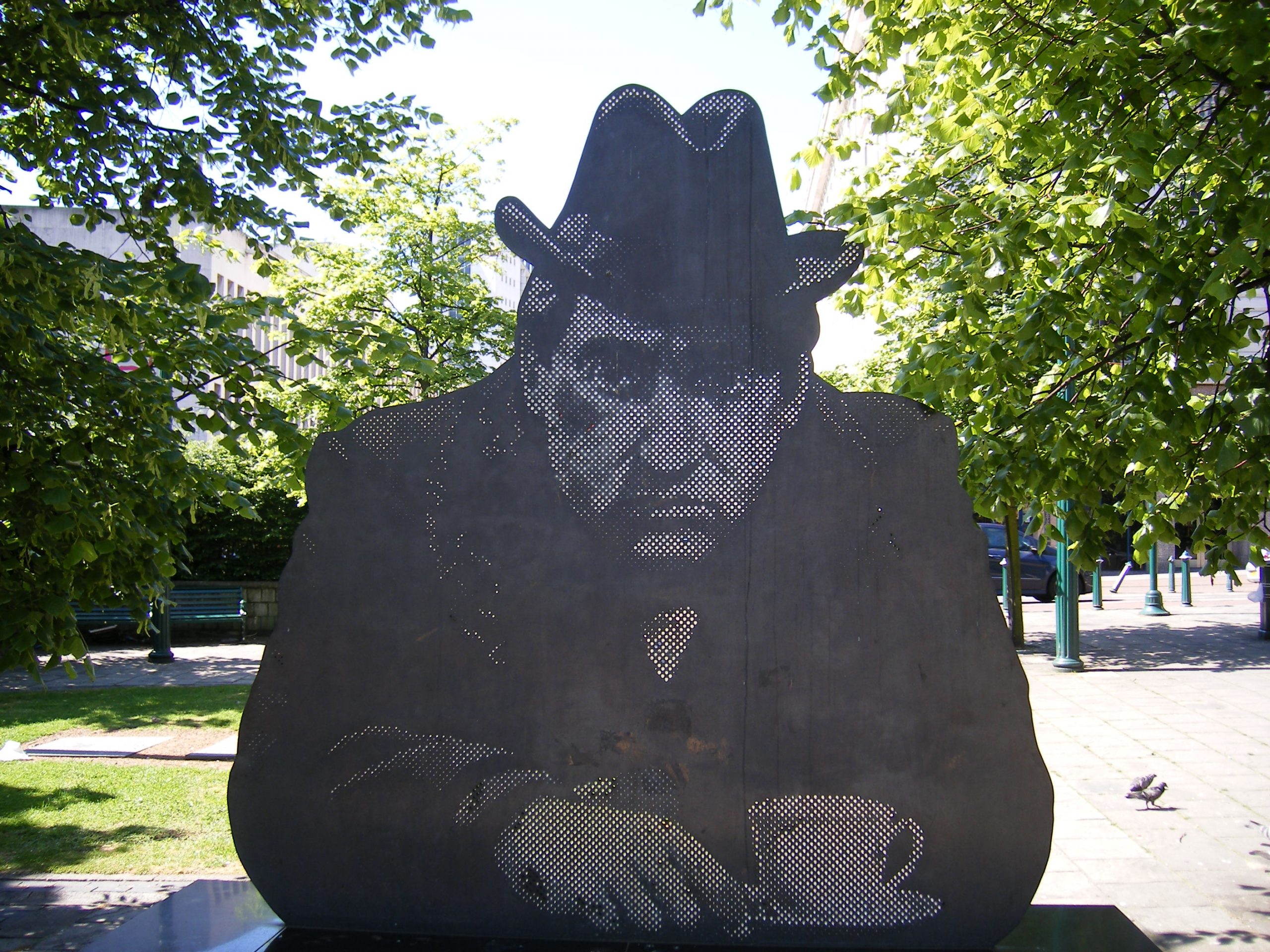We all know that Birmingham isn’t shit. We’ve spent nearly 20 years telling people, showing the world, and often undermining our case. Tired of falling back on the same old cliches, or past achievements, we look at the ineffable reasons why we say ‘Birmingham: it’s not shit’ and attempt to eff it.
“Things just went wrong too many times” has always seemed the ultimate sad end. Sadly it’s from Tony Hancock’s suicide note rather than the council statement on deciding not to bid for the Olympics for the third time in a row.

The statue of Tony Hancock in the middle of Old Square in town is one of Birmingham’s genuinely interesting pieces of public art. The use of space to give the impression of a photograph printed with half-toning echos that the square would once have been awash with nicotine-stained journalists from the Post and Mail building that used to throw a shadow there.
Anthony John Hancock was born in Southam Road, Hall Green, but, from the age of three, he was brought up in Bournemouth and pretty much never gave us a second thought. This would not be unusual, in fact most of us remember virtually nothing of anything that happened before we were three. Infantile amnesia, is the inability of adults to retrieve memories of situations or events before the age of two to four years. That there was no attachment to his birthplace at all would seem to indicate that his parents didn’t care much for Brum either — they moved for ‘the good of [his father’s] health”.
But Tony’s performances — embodied by the Anthony Aloysius St John Hancock version of himself: ‘the comedian Tony Hancock’ — have a great deal to tell us about our attitudes and our city.
The lad himself, was downtrodden, often conned — mostly by Sid James — but chameleonic. From one episode to the next on radio and later television, you never knew if he’d be a successful but overblown actor (in The Bowmans, which explains Brum’s Archers better than any viewing window into the studio — curtains closed when recording — at the Mailbox ever could) or a slouching, bored, rattling through a closed world praying for stimulation (in Sunday Afternoon at Home, which was every Sunday in Birmingham before the late 1990s and every day this covid-ridden year). Like Birmingham, it depends how you look, or what you chose to ignore, you can paint pretty much anything you like onto Tony Hancock; providing that ultimately ambition is thwarted.
JB Priestley said of Hancock that he “overdrew on his intellectual bank balance”, just the sort of snobbish thing that would be said of Brum. This is then followed in classic broadsheet prose by ‘but if you actually go there’… and retrospectives of Hancock do the same.
Later in his career, Hancock co-wrote the film Punch and Judy Man, based on his boyhood in Bournemouth. I’m conscious that he never made a film about running the streets of Hall Green or the old Bull Ring, the sort that would have had Brum nostalgia buffs foaming. He often said that he wanted to create a work that would cover the whole of human experience, “from the first plip to the final plop” – but that did not cover large concrete shopping centres, underground pubs or long circular bus routes. He did not look back in love or anger, he did not look back at all. Forward with Hancock.
Despite being one of the first mass media megastars the UK had seen, the star of the first real British sitcom, the crucible of comedy’s industrial revolution: he’s not majorly feted by the public in the way even the stars of Dad’s Army are. That makes the memory of him sweeter, uncomplicated by the country we have become.
There’s something about Liverpool’s relationship with The Beatles, how for a time the city bristled at them for ‘leaving the minute they made a bob’ and how they were not sure whether to bury or praise. And that complex set of feelings is requited. No, The Beatles never really went back, but the remaining ones allow themselves to be wheeled out when needed and the dead ones can’t stop it.
The spectacular theme-park version of Liverpool finds the fabs uncomplicated and erects statues to every fart they did — but despite the “we’ll have him” celebrity connection collection that leads Brum to claim everyone from Leeds-based discoverer of Oxygen Joseph Priestley to London and America’s thespian David Harewood (and encompassing every glam rocker to come out of the Black Country) Birmingham has made precious little effort to hold on to Hancock.
The city and the man mirror each other, to attempt to sell the connection would be self parody. The marketeers and promoters of Birmingham can’t help themselves, so it has been Hancock himself that stopped us embarrassing everyone again. He did that by simply not giving a fuck, giving a shrug and not looking back over his shoulder. He did the ultimate service to the place that made him, a true Brummie hero. And one that wouldn’t say he was.
In the famous unguarded and desperately frank Face to Face interview on TV he said “we are all unsure of ourselves, and that is both funny and sad”. That should replace our motto on our coat of arms.
